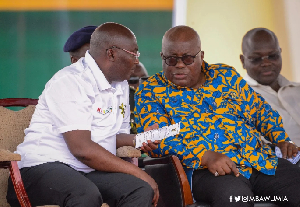I have decided to address this topic as a reaction to inquiries from people wishing to know the status of the DV lottery. I have met people who have told me they will not enter the lottery because the program has been cancelled. I wish to address a bit of a misinformation relating to the current status of the DV program.
Has the DV lottery been cancelled?
No. It has not. Nothing has changed in the running of the program. Perhaps, it may be cancelled in the future. But as it stands now, the DV program is operating and in full effect.
Where did the news of the “cancellation” come from?
It probably came from reports that President Trump had endorsed a new bill titled “Reforming American Immigration for Strong Employment Act” commonly called the Raise Act. The bill seeks to make comprehensive changes to existing immigrant visas. It proposes to halve the total number of immigrants issued green cards every year over the next 10 years. The notorious casualty is the DV Visa Lottery.
The DV Program
Around 50,000 green cardsare issued annually under the DV Program. The DV Visa Lottery has always been popular. It is a means by which a person can obtain a green card to the U.S. without having a family member or employer. Traditionally, you could only obtain a green card if a petition has been issued on your behalf by a family or an employer.
The DV visa is different. You only need to be from a qualifying country and have a high school diploma to qualify. If you do not have a high school diploma, you can qualify by showing two years work experience in an occupation requiring at least two years of training within the past five years. You do not have to pay any fee to enter the lottery.
Will the law affect other visas?
Yes. It will. The DV Visa won’t be the only casualty. Other visas will also be affected. This includes the following:
• Preference Visas
Currently, you can apply for a green card if you are the spouse or child of a U.S. citizen. You can also apply as an unmarried son or daughter, a parent, brother or sister of a U.S. citizen. The Raise Act proposes to abolish these relationships. The only persons who can apply for green cards under the law are spouses and children. There is a provision for sick parents to join their children on a 5-year visa. However, they cannot live and work in the U.S.
• Refugees
The number of refugees issued green cards annually is around 100,000. This will be halved to 50,000.
• Employment-based green Cards
About 140,000 green cards are issued annually through employment. This number will not be cut. However, the existing system will be replaced by a point-based system. If you wish to apply for a green card on the basis of employment, you must show certain attributes including age, educational qualification, investment in the U.S., salary, social or professional achievements.
Will the law be passed?
As it stands now, these are only proposals. The Bill is yet to be debated and voted upon. It is believed that the Bill is a long way from being passed into law. If it eventuallypasses, the DV visa will be gone for good.
Can one still participate in the DV Program?
Sure. Registration for the DV-2019 program begins 3rd October, 2017 and ends 7th November, 2017. The entry is free. However, if you are not sure you will meet the requirements, do not make the entry. Your visa will be refused and your visa fee will not be refunded.
You can log on to the DV lottery website at www.dvlottery.state.gov to make you entry. Apply early. Do not wait until the last day to make your entry. Do it yourself. Do not let someone do for you. If it is necessary that someone enters for you ensure that they enter the right details. Insist on your confirmation number after they submit your entry.
Opinions of Wednesday, 27 September 2017
Columnist: Emmanuel Opoku Acheampong



















